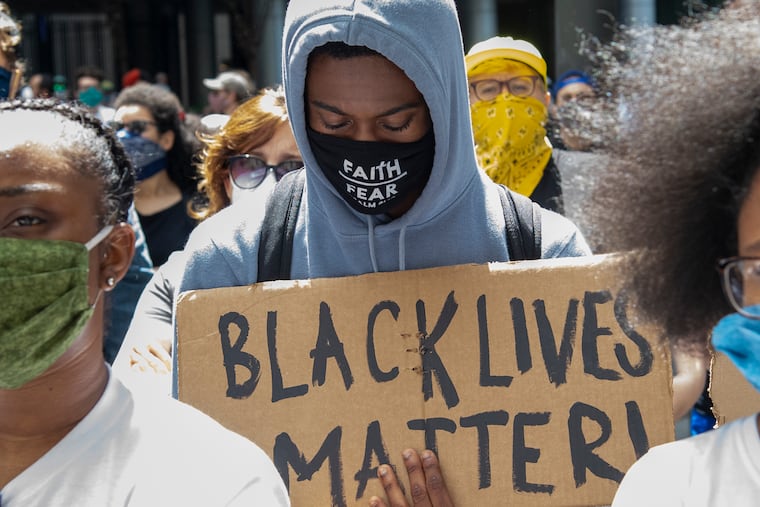Three years after George Floyd’s death, how corporations can support Black businesses
When big businesses fail to follow through on their promises, the racial and gender wealth gap widens.

Many corporations, foundations, and individuals were motivated by the death of George Floyd to take real action against systemic racism, for what felt like the first time in my lifetime. The amount of money that flowed toward this cause was mind-boggling.
According to reporting by the Washington Post, big businesses pledged nearly $50 billion for racial justice after the death of Floyd. Yet more than 90% of that amount — $45.2 billion — was allocated as loans or investments they could stand to profit from, more than half in the form of mortgages. Very little of the money went to grants to support organizations working toward criminal justice reform, the cause for which the money had been pledged.
Therefore, the big business pledge to fight for racial justice wasn’t about change or impact; it was about profits.
I know one way big business can do its part: by supporting Black-led organizations and businesses.
As the founder of a nonprofit organization, I quickly learned that fundraising is especially hard for Black-led organizations and businesses. And as the leader of Mom Your Business, an organization that raises funds to help Black female entrepreneurs, we are in the same position as those we serve.
In 2020, the bank we were using for our business checking and savings accounts was acquired. A colleague referred me to a member of the bank’s executive team who was in charge of outreach. I made contact, invited her to several events, and scheduled meetings regarding partnering and sponsoring events. They expressed interest and never followed through. All I got was the runaround.
When we launched a business accelerator for female start-ups called Founders to Funders, I was again hopeful. My organization applied for funding from a local foundation’s Black leaders fund. Weeks, months, and an entire year went by. I never received a response. Later, I found out that the initial funding for this program came from one of the big businesses that had pledged money in the wake of Floyd’s murder, and it was for one grant cycle only. After that cycle ended, the foundation continued accepting applications even though it knew it didn’t have the money to continue.
This isn’t corporate responsibility.
More recently, I participated in Founder Forward. After it agreed to work with us, the employees of the program sponsors completely ghosted us after one meeting. We were excited to follow up, and yet we received no replies.
One of my cohort members summed it up like this: “I felt abandoned.” Another colleague told me this was the third time a corporate initiative she participated in ended this way. Building a business — whether it’s for-profit or nonprofit — is hard enough without being abandoned by the people who have agreed to help you.
When big businesses fail to follow through on their promises, the racial and gender wealth gap widens. The International Finance Corp. estimates that there is a $300 billion financing gap for women-owned small businesses globally. Further, Black women in America face a 90% wealth gap compared with white men, receive 0.0006% of all venture capital financing, and battle a widening wage gap, despite comparable educational attainment. Overcoming these inequities, according to Goldman Sachs, would create up to 1.7 million jobs for the U.S. economy.
Not all companies are dropping the ball. Consider, for instance, Target. Based in Minneapolis, it has committed to investing $2 billion in Black-owned businesses by the end of 2025, and has implemented a number of initiatives to support Black employees, including a program to help them advance into leadership positions. Locally, there’s the Women Way’s General Operating Fund, which provides two-year grants to organizations primarily serving women. Priority is given to organizations led by women of color that have budgets of less than $500,000.
Instead of pledges and promises that end up as press releases and photo ops, corporations and organizations should consider subcontracting their corporate social responsibility programs to grassroots organizations and entrepreneurs. We are on the ground, running programs, and investing money, time, and resources into the groups companies profess to want to impact.
Businesses should consult entrepreneurs who can share their experiences on what they actually need and the best way to give it to them. I recommend partnering with organizations like the Black Innovation Alliance, a collective of over 100 entrepreneurial support organizations.
Business is about relationships. The racial reckoning of 2020 was just the beginning. Corporations need to keep it real by bringing together grassroots organizations and entrepreneurs in order to create long-term relationships and impact.
Tanya T. Morris is the mentor mogul at Mom Your Business. Mom Your Business promotes poverty alleviation through entrepreneurship by equipping Black and brown women with the tools, resources, and capital necessary to overcome obstacles and achieve social and economic success.